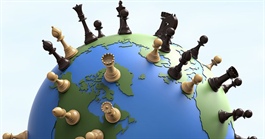Vietnam committed to ensuring harmonious and balanced trade relations with US
Vietnam committed to ensuring harmonious and balanced trade relations with US
The Vietnamese Government continues to exercise monetary policies to contain inflation, stabilize macro-economic conditions, and support economic recovery.
The State Bank of Vietnam (SBV) is committed to continuing to address issues of concern for the US, to ensure a balanced, sustainable, and harmonious bilateral trade relationship.

The main goals of Vietnam's monetary policy are to contain inflation and stabilize macroeconomic conditions. File photo. |
The country’s central bank made the statement in response to a recent report by the US Treasury Department on Macroeconomic and foreign exchange policies of major trading partners of the US, in which the Treasury reviewed and assessed the policies of major US trading partners during the four quarters through December 2021.
In the report released on June 10, Vietnam was among the 12 economies that the Treasury Department has placed on its “Monitoring List” of major trading partners that “merit close attention to their currency practices and macroeconomic policies: China, Japan, Korea, Germany, Italy, India, Malaysia, Singapore, Thailand, Taiwan (China), Vietnam, and Mexico.” All except Taiwan and Vietnam were on the list in the December 2021 report.
This came as the fact that the report concluded no major US trading partner during 2021 manipulated the rate of exchange between its currency and the US dollar for purposes of preventing effective balance of payments adjustments or gaining an unfair competitive advantage in international trade.
Switzerland, nevertheless, meets all three criteria under the Trade Facilitation and Trade Enforcement Act of 2015 (the 2015 Act) over the four quarters through December 2021, and therefore Treasury is conducting an enhanced analysis of Switzerland’s macroeconomic and exchange rate policies in this report.
According to the SBV, the Vietnamese Government continues to exercise monetary policies to contain inflation, stabilize macro-economic conditions, and support economic recovery.
“Any adjustment to the policy should be in line with the market situation and the objective of the monetary policy,” stated the SBV.
Under the 2015 Act, the US uses three criteria to determine if a country is a currency manipulator, including (1) a significant bilateral trade surplus with the US of at least US$20 billion over 12 months; (2) a material current account surplus is at least 2% of gross domestic product (GDP) over 12 months; and (3) persistent, one-sided intervention occurs when net purchases of foreign currency are conducted repeatedly, in at least six out of 12 months, and these net purchases total at least 2% of an economy’s GDP over 12 months.
Both Vietnam and Taiwan exceeded the thresholds of fewer than three criteria under the 2015 Act over the four quarters through December 2021. Vietnam had previously exceeded the thresholds for all three criteria as noted in the December 2021, April 2021, and December 2020 Reports.
Though Vietnam and Taiwan no longer meet all three criteria for enhanced analysis, the US Treasury will continue to conduct an in-depth analysis of these economies’ macroeconomic and exchange rate policies until they do not meet all three criteria under the 2015 Act for at least two consecutive Reports.
In early 2021, the US Treasury commenced enhanced bilateral engagement with Vietnam by the 2015 Act. As a result of discussions through the enhanced engagement process, the Treasury and the State Bank of Vietnam (SBV) reached an agreement in July 2021 to address Treasury’s concerns about Vietnam’s currency practices. The US Treasury continues to engage closely with the SBV to monitor Vietnam’s progress in addressing Treasury’s concerns and is thus far satisfied with the progress made by Vietnam.



















